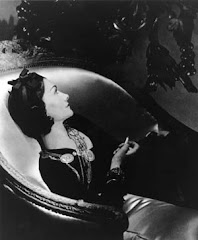
The great Hilary Alexander in the Telegraph reports that the Ossie Clark label is going to be relaunched, headed by Avsh Alom Gur, who has previously worked with Donna Karan and Chloe, at the next London Fashion Week. That's Clark, to the left, and his then wife , Celia Birtwell, in a double portrait by David Hockney which hangs in the Tate Gallery in London.
Last week Gap was exposed for using child labour. Seven days on and it's planning a new Sweatshop-free label
Yesterday, Gap's senior vice president, Stanley Raggio, flew from San Francisco to New Delhi to meet the anti-sweatshop charity the Global March Against Child Labour, to hammer out proposals to tackle child labour.
According to Bhuwan Ribhu, a lawyer from the charity, the US conglomerate set out a series of ambitious proposals including a move that would see it relabelling its garments to allow the consumer to directly track online exactly where they are made.
The system would closely mirror the highly successful RugMark programme which has largely eradicated child labour in India's carpet industry.
The Observer also has a piece on COS, which is an H&M owned label only available in Europe. When I was in Berlin a year ago, I noticed it really seemed to have take off there and the Regent Street store in London is always busy. I haven't bought anything quite yet, but the colours and minimalist shapes are very good. As Polly Vernon says here, it's excellent for affordable staples.
And a review of the third volume of John Richardson's biography of Picasso:
Picasso with an immaculately svelte wife on his arm was an indefatigable socialite, always present on the sidelines of the innumerable mock battles staged by Parisians in this era of brawl and counter-brawl, pillow fights at fancy-dress balls, turbulent first nights, openings disrupted by Dadaist punch-ups and Surrealist reprisals. Politics passed Picasso by. So did the bleak realities of social and financial disintegration in postwar France. Even the final throes of the 1914-18 war seem to have impinged on him chiefly as a tiresome inconvenience that cut off supplies, detained friends at the front, and interfered with Diaghilev's ballet bookings ('German and Austrian troops had broken through the Italian lines, so Rome was out; the third battle of Ypres was going badly, so Paris was out...').

No comments:
Post a Comment